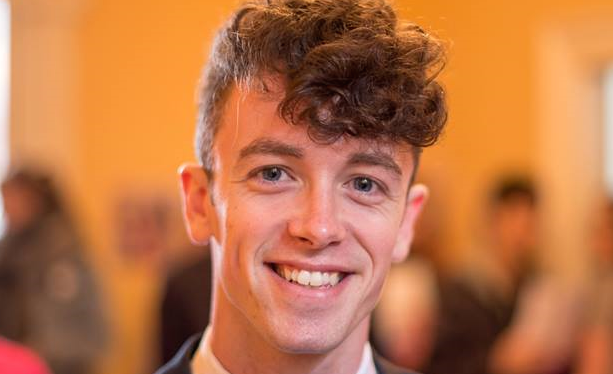‘No’ campaigners take a harsh toll on Ireland’s LGBT community

 With Ireland’s marriage referendum mere days away, 22-year-old Cork resident Brian O’Flynn (pictured) reveals what life has been like on the ground for LGBT people in the country as the campaign gets increasingly fiery. It’s been a bumpy ride…
With Ireland’s marriage referendum mere days away, 22-year-old Cork resident Brian O’Flynn (pictured) reveals what life has been like on the ground for LGBT people in the country as the campaign gets increasingly fiery. It’s been a bumpy ride…
As most readers are probably aware, Ireland is due to host the first-ever referendum on same-sex marriage later this week (May 22).
If this is to pass, we will be the first country in the world to legalise same-sex marriage by popular vote; a momentous step forward for a country that is often seen internationally as backwards and Catholic. The opportunity to vote on such an issue is both a blessing and a curse. It is a hopeful and empowering prospect in many ways.
We have the chance to truly drive the message of equality home. If we do succeed in obtaining a Yes vote, then we will have the added morale boost of knowing that we are supported by the majority of our fellow citizens. Though of course polling shows that the majority of citizens in the UK are in favour of marriage equality, there is something more concrete about having those citizens walk into a polling station and officially endorse your equal status. It is more affirming than simply having such a change executed in the stuffy, inaccessible chambers of a parliament building. Having the public vote on this issue could ultimately result in us having a much stronger sense of belonging in our country.
Equally, having the public vote for marriage equality would finally dispel the myth of a Catholic Ireland. The international community seems to view the country as overwhelmingly religious, bound by tradition and religious prejudices. This could not be further from the truth; our country is vibrant, progressive, and increasingly atheist. Many people with first-hand experience of our beautiful country know this. But for those who have only ever known Ireland as a far off haze of green fields and Guinness fumes, a Yes vote would send a powerful message; the views of our people are progressive, informed and modern.
Finally, the responsibility to campaign for a Yes vote has galvanised our community beyond all expectation! We have never been so united as LGBT people, and virtually everyone is engaging to some degree. Groups across the country have been going door-to-door every day, canvassing for a Yes vote. The numbers turning out for these canvasses have been incredible. People really care. This referendum has woken them up like a splash of cold water; we’re all here, we’re all listening, and we’re all determined to claim our rights.
I feel excitement, hope and optimism for a brighter future. But there have also been downsides. The sudden public interest in this issue has resulted in nearly constant public debates, TV and radio debates, and infomercials. While these have been opportunities to educate the public about the importance of marriage equality and to reach people that we would otherwise never be able to reach, they have equally been opportunities for the anti-gay campaigners to do the same. We have been inundated with anti-gay messages in the media. Countless No campaigners have been invited on air to discuss why they believe that we as citizens do not deserve equality – and that has been painful to watch and listen to. The referendum has given us a platform to fight for our equality in mainstream media, but it has also given anti-gay campaigners an equally high platform. It is a truly degrading experience to witness people calmly debating your right to be equal every day, and I for one will be glad not to have to endure it once the referendum is over.
The referendum has also caused our lives and actions to be politicised. Recently, a mural of a gay couple was painted on a public building in Dublin, and despite there being no reference to the marriage referendum, it was demanded that it be taken down. Similarly, there were complaints when rainbow flags were raised over council buildings during LGBT Awareness Week. We are not allowed to be gay, or express ourselves as gay people, without our agenda being called into question. The No side want to convince the public that everything we do is a political statement. It hurts to have our lives commodified that way.
Finally, we have to face the horrific prospect of a No vote. If the public were to vote No, all the confidence we have built as a community over the past decades would be devastated. All the polls and statistics that have claimed for years that we are seen as equal by the majority of citizens could be de-legitimised by this single vote. We would no longer feel sure of our sense of place in our own communities. We would feel unwanted by our own people. It would send the message to our citizens and to other countries that Ireland still values religion more than human beings.
But I see the post-Yes Ireland in my mind’s eye, and it fills me with pride. I long for the day when I can marry the one I love without having to fly my friends and family to a different country to do it. I believe in the people of my country, who have always been so warm, so kind and so generous. I trust them to do the right thing on May 22, and vote Yes for equality.
BY BRIAN O’FLYNN
